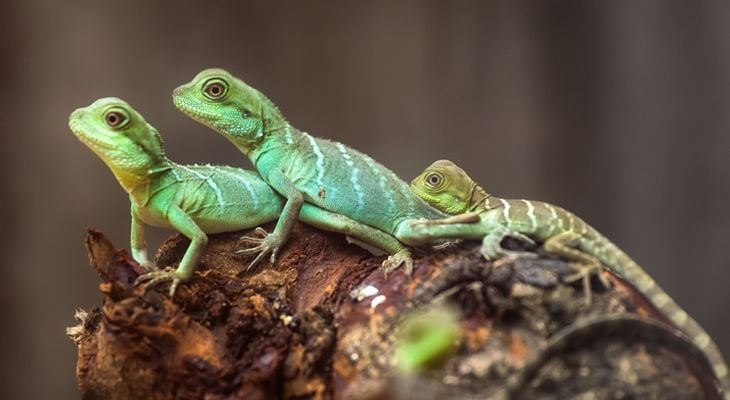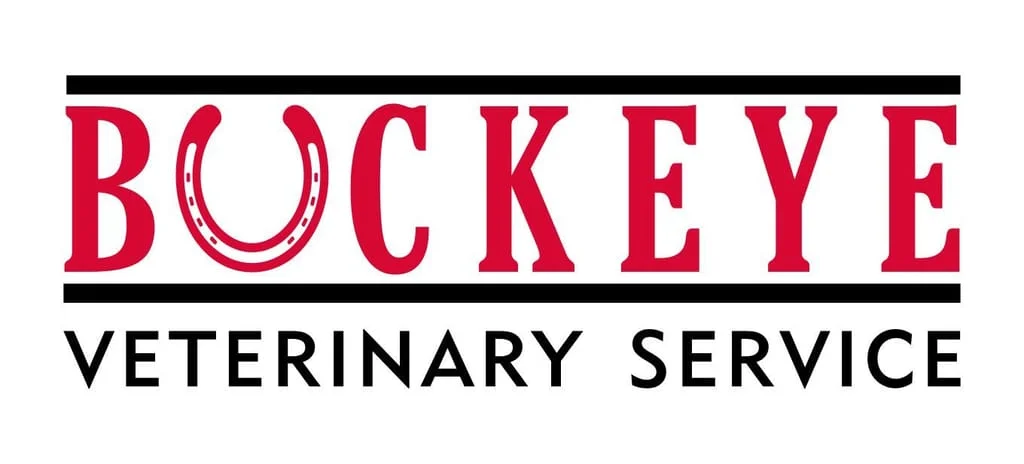When winter weather strikes, these tips will keep your horse warm and comfortable.
Read more

People with limited living quarters may find that reptiles such as lizards or turtles fit perfectly into their lifestyles. Before deciding on a reptile, learn as much as possible about them and their needs. Poisonous snakes and certain reptiles should never be kept as pets. Ask your veterinarian about the suitability of a particular animal before you make your decision. There are many things to consider before committing to a reptile as a pet.
Finding out if a Pet is Legal Where You Live
Many areas have enacted laws pertaining to keeping reptiles. Some are general and some are quite specific; in many places any reptiles that are considered dangerous (venomous snakes, alligators, etc.) are illegal but some places are even more restrictive (for example, in some states all constricting snakes including ball pythons are illegal).
Salmonella Risks and Prevention
All reptile owners need to be informed about Salmonella infections. While the risks shouldn't keep most people from keeping reptiles since with the proper management the risks are minimal. Still, owners should be aware of the risks, and the US Centers for Disease Control recommends that certain risk groups should be careful about contact with reptiles and amphibians.
The Importance of Light and Heat
Many problems with keeping reptiles can be traced back to not providing the proper environmental conditions, particularly heat. Proper lighting is also important for many reptiles. The equipment to provide the proper heat and light to captive reptiles is often quite expensive, but is absolutely essential to keeping pet reptiles healthy. It is important to find out exactly what conditions your reptile needs and never cut corners when it comes to meeting those conditions!
Why Choose Captive Bred Reptiles
There are numerous reasons why you should pick a captive bred reptile if at all possible, as explained here.
How to Pick a Healthy Reptile
It is important to keep in mind that depending on where you get a reptile, it may be very stressed, dehydrated, and prone to illness. Here are some items to look for when buying your reptile to increase the chances of picking out a healthy pet reptile.
While there are many types of reptiles that could be good pets, here we cover a few you could consider.
-
How To Care For Your Horse When Temperatures Drop
Category: Newsletter Library, Equine
-
Diseases That May Affect Your Horse
Category: Newsletter Library, Equine
-
Coupling Equine Nutrition & Acupuncture
Category: Newsletter Library, Equine
Integrated medical care for horses has been shown to not only enhance their overall performance in competition, but benefit their everyday well being. According to the International Veterinary Acupuncture Association, acupuncture can be effective to both prevent illness and treat specific equine health
Read more -
Caring for Senior Horses
Category: Newsletter Library, Equine
With proactive veterinary care, horses can live well into their late 20s and early 30s. In fact, the average life expectancy for most horses is now between 28 and 33 years. Basic senior wellness care includes dental care, balanced nutrition, and hoof care. This care ensures horses remain healthy and
Read more -
Advances in Equine Breeding & Assisted Reproduction
Category: Newsletter Library, Equine
Assisted equine reproduction has opened up new possibilities in the equine sporting community for horses where this was once limited. With the help of your equine veterinary specialist you can determine if your horse is an ideal candidate for this process either to become artificially inseminated or
Read more -
Preventing Thrush in Horses
Category: Newsletter Library, Equine
Thrush is a bacterial infection, and one of the most common diseases, affecting horses’ hooves. You will likely know it when you see — and smell — it. The pungent, tar-like black discharge collects in the sulci, or grooves, along the sides of the frog, the triangular structure that covers about
Read more -
Select the Right Saddle
Category: Newsletter Library, Equine
The right saddle will make a significant difference for both you and your horse and ensure a safe, balanced and relaxing ride. Comfort is key; if the rear of the saddle is up after you cinch the saddle on your horse, or if the saddle wants to roll after you place it on, the saddle is not the correct
Read more -
Strategic Deworming for Equines
Category: Newsletter Library, Equine
If you are a long time horse owner, you may be familiar with traditional parasite control strategies. Traditionally, the most common parasite control approach called for horse owners to deworm their horse year round every six to eight weeks, rotating products. Alternatively, horse owners also could opt
Read more -
Why You Need to Keep Stalls Clean
Category: Newsletter Library, Equine
How often do you clean your horses’ stalls? Ideally, horse stalls should be cleaned every day and kept as clean as possible. Since horses often lie down in their stalls at night, this behavior means that if you are not keeping the stalls clean, horses could be lying in their own urine or manure –
Read more -
Prevent Incurable Horse Virus
Category: Newsletter Library, Equine
Eastern equine encephalitis virus (EEEV) is transmitted by the bite of an infected mosquito, advises the Centers for Disease Control (CDC). The virus is rare and causes inflammation of the brain called encephalitis. Animals, especially horses, are vulnerable to this infection. "All equine cases are
Read more -
Nutrition Affects a Horse's Behavior
Category: Newsletter Library, Equine
Has your horse not quite been themselves lately? Have you noticed unusual fatigue or conversely, excitability? You may be surprised to learn that nutrition and dietary choices play a significant role in determining equine behavior. And, it is not simply what they eat, but how. Horse owners often report
Read more -
Horse Talk: Oral Exams Matter at Every Age
Category: Newsletter Library, Equine
Regular dental care is an important part of equine wellness care. Horses have a hypsodont tooth and an anisognathic jaw conformation. This means that the upper jaw is wider than the lower jaw, an arrangement that maximizes a horse’s chewing efficiency. A horse’s teeth and bite are important for more
Read more -
Keeping Your Horse Free of Colic
Category: Newsletter Library, Equine
Colic, in its more severe manifestations, takes more horses' lives than any other common equine ailment. If your horse has frequent bouts with this painful form of digestive upset -- or if you would like to protect him from having such problems in the future -- it's best to understand what causes colic
Read more -
Foaling Injuries and Complications
Category: Newsletter Library, Equine
If your mare is about to give birth, chances are that the foal will emerge normally and in good health..However, just as human births can develop complications, equine births can present complications, and these complications may threaten the mother, the foal, or both. It helps to know what might happen
Read more -
Equine Laminitis
Category: Newsletter Library, Equine
Have you noticed changes in your horse's gait? Are they showing signs of fatigue or are disinterested in exercising? Equine laminitis is inflammation of the sensitive and insensitive laminae in horse's feet and generally occurs bilaterally in the front feet. This multi-faceted issue tends to run in heavier
Read more -
Understanding EHV Equine Herpesvirus
Category: Newsletter Library, Equine
Equine Herpesvirus (EHV-1) is an infection in horses that can cause respiratory disease, abortion in mares, neonatal foal death, and/or neurologic disease. When this infection spreads neurologically, it is referred to as Equine Herpesvirus Myeloencephalopathy (EHM). This virus is spread through the air,
Read more
Locations
Office Hours
24 Hour Emergency Care - 365 Days a Year
8:00 am - 4:30 pm
8:00 am - 4:30 pm
8:00 am - 4:30 pm
8:00 am - 4:30 pm
8:00 am - 4:30 pm
Emergencies Only
Emergencies Only

